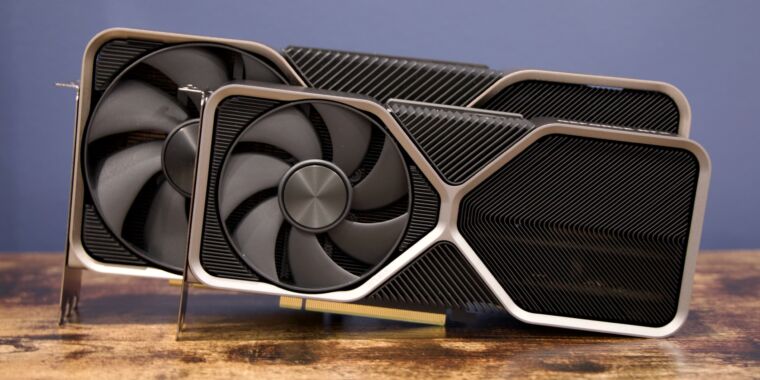Andrew Cunningham
Anyone who has ever attempted to squeeze a little more performance out of a graphics card is probably familiar with MSI Afterburner, software used for GPU overclocking and undervolting and performance monitoring. Despite the MSI branding, it’s actually widely compatible with Nvidia and AMD GPUs from all vendors, and for years it has been a simple-but-effective tool for people trying to get the most out of their hardware.
The app’s stable version was updated earlier this week for the first time since late 2021, adding official support for Nvidia’s RTX 4000 series cards and AMD’s RX 7000 series cards, partial Intel Arc support, and a few other additions and fixes.
The long gap between the release of version 4.6.4 and 4.6.5 results from Russia’s invasion of Ukraine in February 2022. The software is maintained primarily by Alexey Nicolaychuk, a Russian national who has been developing it continually since it was introduced in 1997 as RivaTuner.
Nicolaychuk declared the Afterburner project “probably dead” in a forum post earlier this year, claiming that MSI had “semi-abandoned” the software and that the company had stopped paying him. MSI confirmed to PC Gamer that it had not been able to pay Nicolaychuk due to “economic regulations” caused by other countries’ sanctioning of Russia following its invasion of Ukraine, not because it had plans to abandon the software entirely.
“We fully intend to continue with MSI Afterburner,” an MSI representative told PC Gamer. “MSI have been working on a solution and expect it to be resolved soon.”
Although none of the parties involved have issued a follow-up statement, a new version suggests that the solution worked and that the problem has been resolved. (For his part, Nicolaychuk has “decided to stop commenting [on] the future of the project publicly.”)
If you’re downloading a new version of Afterburner, make sure you’re doing it from either MSI’s website or Guru3D (the Guru3D site currently appears to be more up to date). MSI’s network was breached in a cyberattack earlier this month, and the company has warned users to only download drivers, BIOS updates, and other software from official sources to avoid malware.
